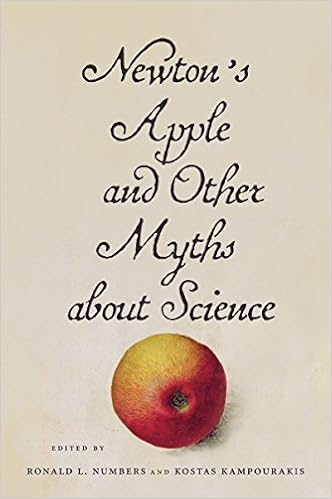 From a (paywalled) review in Science of Newton’s Apple and Other Myths About Science (Ronald L. Numbers and Kostas Kampourakis, Eds. Harvard 2015):
From a (paywalled) review in Science of Newton’s Apple and Other Myths About Science (Ronald L. Numbers and Kostas Kampourakis, Eds. Harvard 2015):
Before Columbus discovered America, people believed that the world was flat. When the apple struck Newton’s head, he discovered gravity and replaced God with objective truth. Gregor Mendel was a lone genius who discovered genetics. You will probably have heard at least some of these stories—you may even have believed them—but this delightful collection of short, thought-provoking essays shows that they are all myths.
So pointing out that the pop sci lore on these subjects is largely myth is now going mainstream? Used to be, earnest Christian profs wrote this stuff. They were correct, and often engaging, but who cared? Media could just shovel the myths anyway.
And what will become of the current war on falsifiability if it matters whether something is true or not?
Also from review:
Ron Numbers sets out to demolish the idea that social Darwinism was a major influence on American social theory during the late 19th and early 20th centuries. He offers a lot of interesting evidence, noting, for example, how seldom the phrase “social Darwinism” was actually used by politicians, businessmen, racists, and others during this period. Yet, the chapter doesn’t quite persuade, perhaps because when an idea is really widespread, its tenets are taken for granted by many who are unaware of their origins and, therefore, unlikely to reference the original theory.
Apart from buying the book (US$20.62), it might be worth buying the review (US$30), just to hear someone admit stuff so obviously true—and so widely denied for shameless political reasons. Anyway, now you know what to do with your holiday gift money.
From Amazon’s Publisher collection:
Twenty-seven popular myths about science and its history bite the dust in this engaging and timely book. In these essays, Numbers, Kampourakis, and a host of eminent experts set the record straight and explore how and why these myths become part of our collective memory?whether right or wrong. Each chapter offers important lessons about history and the scientists involved in some of our most significant discoveries. (Janet Browne, author of Charles Darwin: A Biography)
See also: Flat Earth award for mythmaking:
Now, the spherical nature of Earth became so much a part of popular culture that when Dante (1265-1321 CE) wrote the most famous poem of the period, the Divine Comedy, he put Hell inside Earth – a convenient location for the worst place in the universe because Earth was considered second worst – the heaviest place, to which everything fell.
I can’t decide what the award should be, but maybe someone will donate toward a work of historical fiction – a bodice ripper, perhaps, with lots of castles and shining armour. Fact-based books would be wasted on the recipient. More.
Will there still be science in 2020?
and
Darwinian racism
Follow UD News at Twitter!